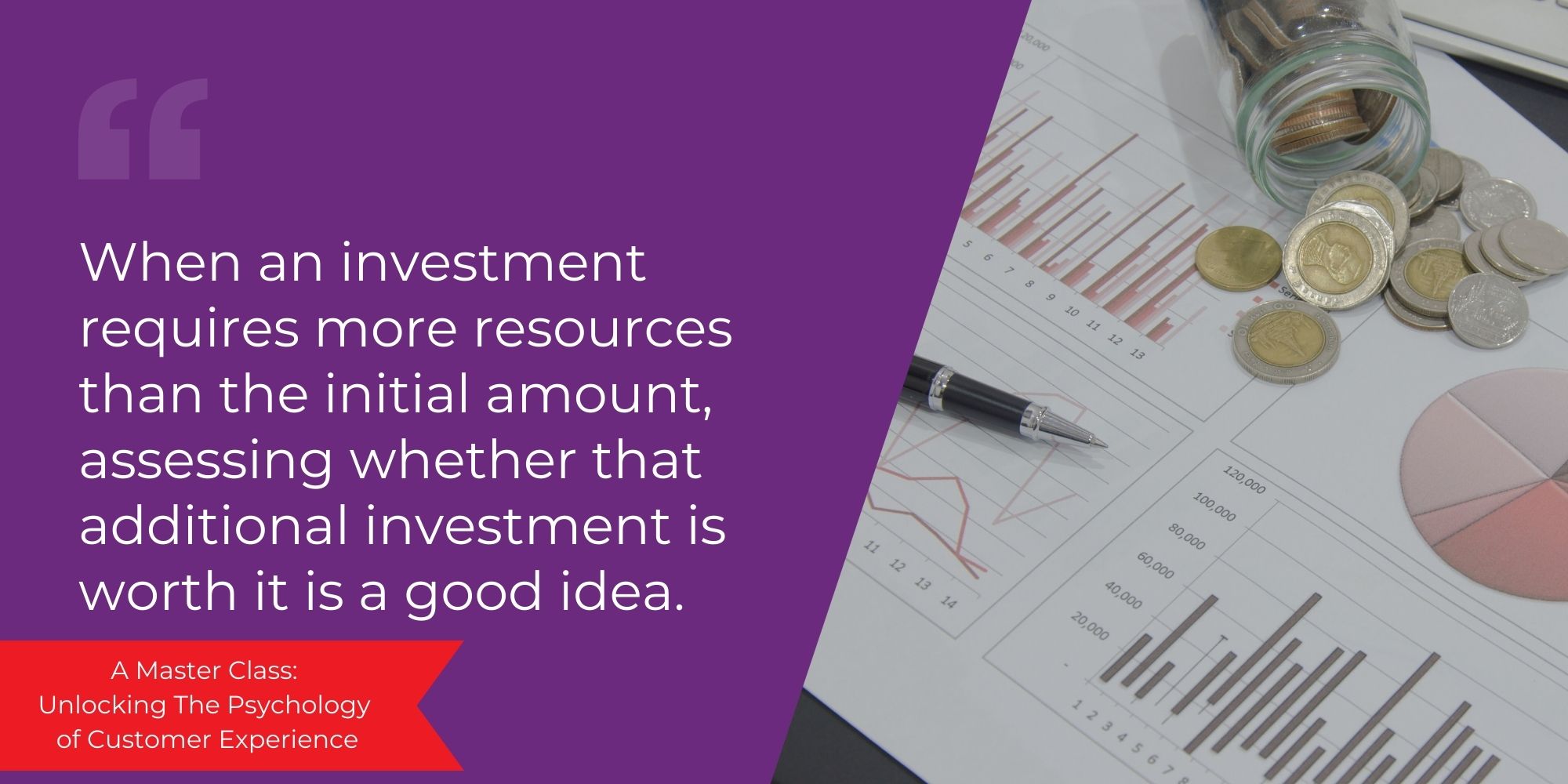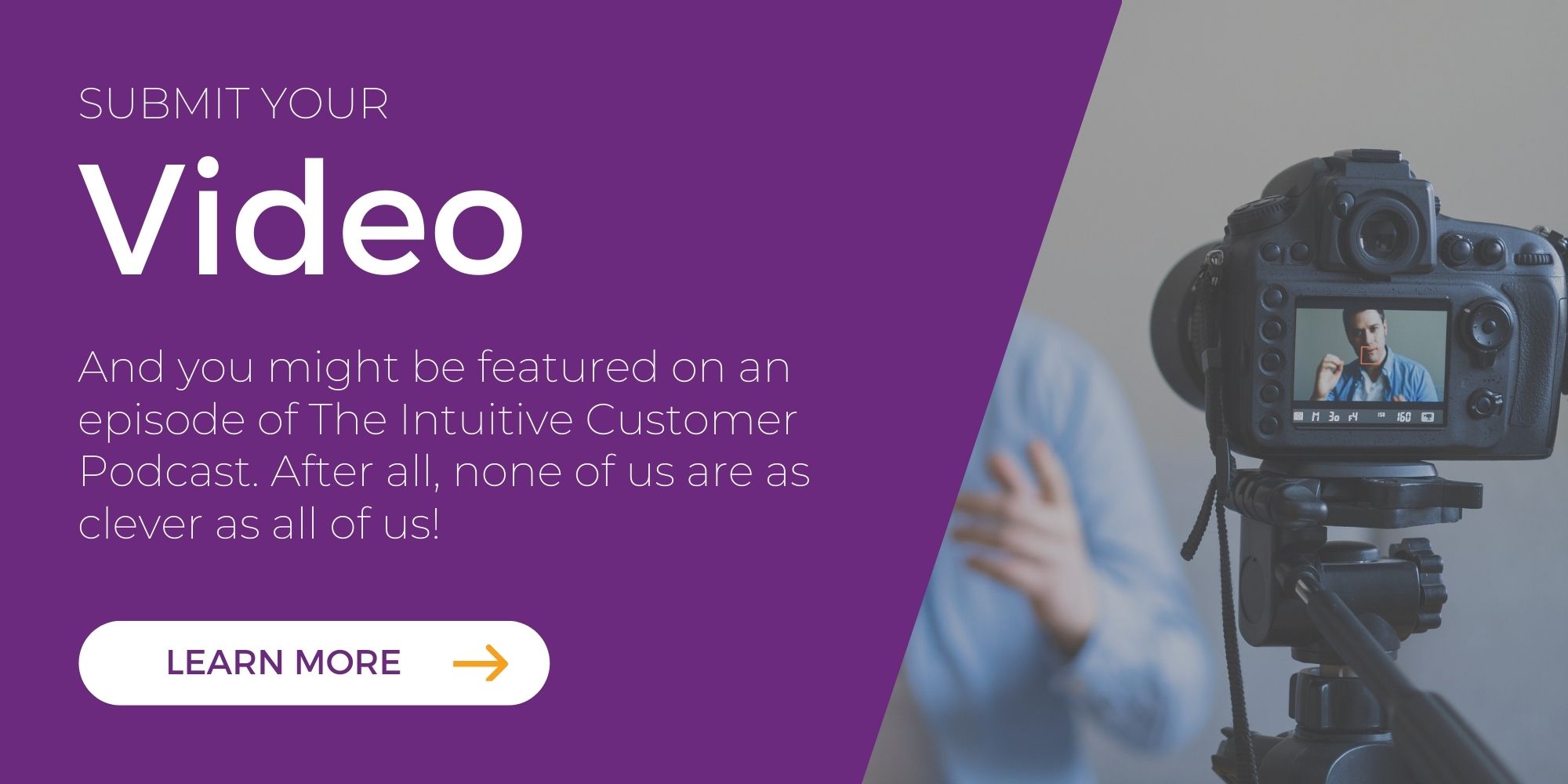Learn more about Colin Shaw: Join over 80,000 people on our LinkedIn Newsletter list or visit our website for more great podcast episodes.
Listen to the podcast:
When it comes to experiences and the influences psychology has on them, there is never one thing happening at any one time. There are typically several things happening.
I mention this because, on the podcast, we have been doing a masterclass about Unlocking the Psychology of Customer Experience. Our latest episode delves into an area that is pertinent here: economic biases. In other words, we discussed how our logic might be flawed when making financial decisions.
Everyone wants a silver bullet to solve their experience challenges. Unfortunately, there is never a silver bullet; many things happen at any given time, so there are also multiple ways to manage them. By grouping many psychological heuristics, a way of saying “thinking shortcuts,” we can address this need comprehensively.
Many biases have been identified in our economic decisions. Understanding these economic biases is important because you know how people think, solve problems, and why they do what they do in a given circumstance. Let’s look closely at some of them, beginning with the Sunken Cost Fallacy.
The Sunken Cost Fallacy
The Sunken Cost Fallacy was identified decades ago and has been documented many times. Considering how long the concept has been part of conventional wisdom, it has been around much longer. The idea explains how once we have invested in something, we have difficulty walking away. The idiom “throwing good money after bad” describes this behavior.

When an investment requires more resources than the initial amount, assessing whether that additional investment is worth it is a good idea. In other words, will the payoff be worthwhile after accounting for the extra resources? If not, we should walk away.
However, after investing, it’s hard to walk away. Sometimes, the pain of losing what you have already invested inspires you to gamble on spending more to avoid that loss. This problem happens with purchases, in jobs, and even in relationships.
From a rational perspective, your past investment shouldn’t influence your future decisions. In a purchase, that money is already spent. In a relationship, those “best years” have already passed. When that money you already paid or the years passed influence whether you invest more money or time, the Sunk Cost Fallacy is doing its best to thwart your rational instincts.
Relationships with brands also can have a Sunk Cost Fallacy. Sometimes, people do not fancy switching from a brand—even when it isn’t the brand it used to be—because they have invested so much in it, whether that investment was money, time, self-affiliation, or advocacy.
Mistakes happen; that’s not the problem. The problem is that you perpetuate the mistake when you succumb to the Sunken Cost Fallacy, which allows the initial error to lead to subsequent ones.
For example, one office where a friend worked used a photocopier and printer paper with the company logo printed in a watermark. However, when you used it, sometimes you couldn’t read the print because the logo was too dark behind the type. When his coworkers brought the office manager’s attention to it, the manager didn’t want to throw it out, even though it didn’t work, because they had spent so much money on this custom paper.
At least, my friend thought that was why. The memo was hard to read; the watermark was too dark.

Loss Aversion
Another economic bias that affects our logic is Loss Aversion. This effect describes how we are much more sensitive to losses than gains. We respond more emotionally to losing things than we do to gaining them. Another way to put it is it hurts more to lose $20 than earning $20 feels good.
Loss Aversion is one of the key concepts of a larger insight into Prospect Theory by Nobel-Prize Winning Economists Professor Daniel Kahneman and Amos Tversky. It describes our behavior in many scenarios.
Loss Aversion is why some people would rather risk a possible layoff in a company than every employee taking a five percent salary reduction. We would rather roll the dice and hope our position isn’t eliminated in the layoff than take less money for our work. It’s also why a price increase feels like a loss and creates a negative and robust response from consumers. Many customer complaints also find their origins somewhere under the influence of Loss Aversion.
Relative to any reference point, whether it’s our expected experience, price, or salary, getting less than that expectation is perceived as a loss, and we respond negatively. Moreover, that negative response is more intense than our positive response to a better-than-expected experience, price, or salary.
The Endowment Effect
The next economic bias I want to cover is also part of Loss Aversion. The Endowment Effect builds upon it. Endowment is the key word here, referring to a sense of ownership. If you feel you own it, it is part of your endowment, and you value it more.
One of the early researchers who developed the Endowment Effect was Nobel-prize-winning economist Richard Thaler at the University of Chicago. One of the early demonstrations of this was very clever. They took a classroom full of MBA students and gave each of them either a mug from the university or a fancy chocolate bar, both of which had a similar dollar value. The research team randomly distributed the two gift options, telling the students they could trade if they wanted to, and waited to see if anyone would. The research team realized that only some were willing to trade once they gave the student the mug or chocolate bar. The Endowment Effect was such that giving away their free and equally-priced mug or chocolate bar was perceived as too much of a loss versus the gain of the other item.
Certain factors intensify the effects of Loss Aversion and the Endowment Effect. Personal attachment is one.
The Endowment Effect also explains why people selling a house they have fond memories of tend to price it high. It feels painful to give up the home, so they expect a higher price for it. The professional real estate broker or agent will have a lower price in mind because they are not personally invested in the house. Their job is to help bring the owner’s expectations back to reality.
Another example is all our bloody photos. I take lots of pictures, but I don’t look at them. There are THOUSANDS in the cloud, but I don’t delete them. Part of that is because of the Endowment Effect. It’s more valuable to me to have the photo and not look at it than to feel the pain of losing it—including the picture of my dinner on April 8th, 2017.

People Are Not Logical
The most important takeaway from these economic biases is understanding that people are not always logical and we are not always rational in our decision-making. Are we mindless, irrational animals? No, we are not that extreme, either.
Usually, we approximate rationality with a cognitive system that is not rational and wasn’t built to be sensible. So, on the surface, it seems logical; we think we are using logic to make these decisions. However, the process’s irrationality drives behavior and leads to irrational decision-making.
Remember, there is never just one thing happening. Several things are happening, and you must understand how they interact. Moreover, how these things happen is how our logic is flawed.
This understanding is key. Once you realize that many of our decisions are not rational, nor is there only one reason they made them, you can act and be deliberate about what you do in your experience to help influence irrationality in your favor.

Have something to say? We are looking for people to share their new ideas, opinions, thoughts, reports, or statistics in a 5-minute video & audio. We will run this at the show’s top, and Colin will discuss it with his co-host, Professor Ryan Hamilton. This is an excellent opportunity to get your message to a vast audience. Currently, the podcast has 12,000 downloads per month on average!
If you’re interested in submitting, fill out the form here.


